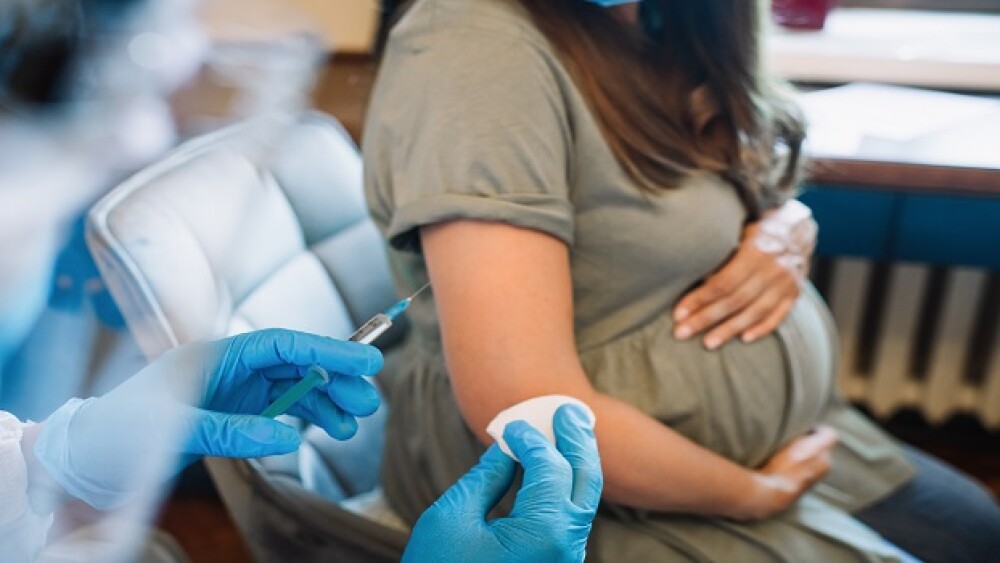Although the data suggests the vaccines are extremely effective and generally safe, analysis is still coming in about adverse events as well as effectiveness in specific patient populations.
With billions of people receiving COVID-19 vaccines in a relatively short period, it’s not unexpected that rare side effects would be observed. Although the data suggests the vaccines are extremely effective and generally safe, analysis is still coming in about adverse events as well as effectiveness in specific patient populations. For those and more COVID-19 news, continue reading.
Pfizer-BioNTech Vaccine Decreases Risk of Hospitalization in Children
Pfizer and BioNTech published trial data of their COVID-19 vaccine in children aged 5 to 11. The enrollment period was from July 1, 2021, to Feb. 17, 2022, and included patients and controls at 31 hospitals in 23 states. Although the vaccine with a two-dose regimen wasn’t quite as effective against the Omicron variant as it was against the Delta and wildtype variant, the “vaccination prevented most life-threatening COVID-19 in both periods. Vaccination also reduced the risk of hospitalization for COVID-19 among children 5 to 11 years of age by two-thirds during the Omicron period, and most children with critical COVID-19 were unvaccinated.”
WHO: COVID-19 Vaccines Possibly Linked to Hearing Loss
The World Health Organization reports it has been informed that tinnitus, or ringing in the ear, might be linked with the COVID-19 vaccines, as well as potential hearing loss. It’s extremely rare, however, if it is associated with the vaccines. Out of 11 billion vaccines administered, the WHO has received 367 reports of tinnitus and 164 cases of hearing loss. The onset ranges from a few minutes after the shot to 19 days. It is more common within a day of the shot. People reporting tinnitus ranged in ages from 19 to 93, with 63% being women. It was reported in 27 countries, including the U.S., U.K. and Italy. About 80% of reported cases were with the Pfizer-BioNTech shots.
Merck and Ridgeback Phase III Data on COVID-19 Antiviral Legebrio
On Dec. 23, 2021, the U.S. Food and Drug Administration (FDA) granted Merck and Ridgeback Biotherapeutics’ molnupiravir (Legebrio) Emergency Use Authorization (EUA). The drug is an oral antiviral to treat mild to moderate COVID-19 in adults who have had a positive test and who are at high risk for severe disease, hospitalization or death.
Today, the companies announced they will be presenting data on the drug from its Phase III MOVe-OUT trial, which compared Legevrio to placebo against COVID-19 in non-hospitalized adults with mild to moderate COVID-19 at high risk of disease progression. In patients who tested positive at baseline and whose post-baseline infectivity data were available, the drug demonstrated rapid elimination of the virus compared to placebo. On the third day of treatment, in infected patients, SARS-CoV-2 was detected in 0.0% of patients who received the drug compared to 21.8% in the placebo group.
Further, on the fifth day, the Lagebrio arm was positive 0.0% compared to 2.2% in the placebo arm. On Day 10, virus was not detected in either arm. From Days 3 through 10, molnupiravir was linked with greater mean decreases from baseline in SARS-CoV-2 RNA compared to placebo. However, they had comparable rates of viral RNA clearance through Day 29.
ARCA’s COVID-19 Treatment Misses Mark in Phase IIb
ARCA biopharma announced results from its Phase IIb ASPEN-COVID-19 trial of rNAPc2 for hospitalized COVID-19 patients. Although both doses of the drug demonstrated a treatment benefit, neither hit statistical significance for the primary efficacy endpoint of change in D-dimer level from Baseline to Day 8 compared to standard of care heparin. The drug is a potent and specific inhibitor of tissue factors.
Vaccinated Pregnant Women at Much Higher Risk of Breakthrough Infections
An analysis of medical records of almost 14 million patients in the U.S. since COVID-19 vaccines became available found that pregnant women who had been vaccinated have the greatest risk of developing COVID-19, so-called “breakthrough infections.” It’s almost twice as high as for people who are not pregnant. Another study recently found that individuals who are pregnant or who recently gave birth and catch COVID-19 are particularly at risk of serious disease. It also increased the risk of pregnancy complications, such as premature births.
“If you are fully vaccinated, that’s magnificent,” said lead author, Dr. David R. Little, a researcher with electronic medical records company Epic. “But if you are fully vaccinated and become pregnant, you remain at higher risk of acquiring Covid.”
Dr. Brenna L. Hughes, vice chair for obstetrics and quality at the Duke University School of Medicine Department of Obstetrics and Gynecology, said, “To me, the most important question the new study raises is, is there an increased rate of severe illness and death in pregnant patients after a certain period of time? I have not admitted a single vaccinated patient to the ICU. Every one has been unvaccinated. Of course, we worry as boosters wane.”
Senate Close to a $10 Billion COVID-19 Aid Package
The U.S. Senate seemed to have stalled over continuing financing COVID-19 relief, but it now appears they are close to finalizing a deal that would provide $10 billion in new aid. They say they are still tweaking the legislative text and waiting for a report from the Congressional Budget Office.
Senate Majority Leader Charles Schumer (D-NY) said they were “getting close to a final agreement that would garner bipartisan support. We are working diligently to finalize language, scoring, and a final agreement on what should be funded in the final COVID package, both domestic and international.”
The $10 billion figure is down from the $15.6 billion that was originally proposed in the budget, and then removed from the government funding bill passed in March. The $10 billion is expected to be divided to include $5 billion for vaccinations and therapeutics. The money will primarily come from reprogramming funds that were passed in previous COVID-19 bills, but not to redirect money previously allocated to state and local governments.





